Copyright © 2024 Peking University School of Transnational Law.

2020-01-11 Views: 141
On January 9, 2020, a public lecture on “Recent Developments in U.S. Intellectual Property Law and Antitrust Law” was successfully held at Peking University School of Transnational Law (STL). This lecture invited Hugh C. Hansen, Director of the Intellectual Property Research Center of Fordham University in the United States, and Daryl Lim, Professor of Law and the Director of the Center for Intellectual Property (IP), Information & Privacy Law at the University of Illinois at Chicago John Marshall Law School, to share the latest developments in US intellectual property law and antitrust law, as well as its impact on China. Professor Susan Finder, distinguished scholar at residence at STL, chaired the lecture.
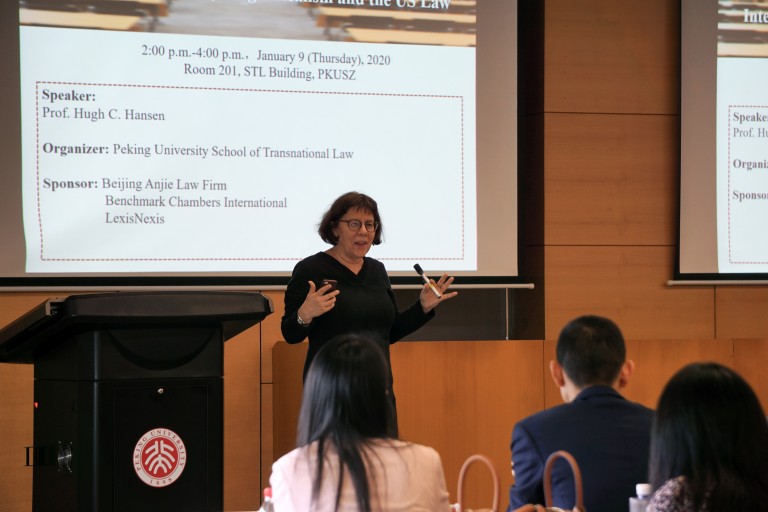
Professor Hugh C. Hansen has taught intellectual property law for many years. His focus is on the legal realist understanding of how courts, agencies, congress and the private sector interact with IP law and each other. In the same vein, he has founded and currently directs the Fordham Conference on Intellectual Property Law and Policy, now in its 25th year, and the Fordham IP Institute. The Director General of the WIPO called the Fordham IP Conference “the Davos of the IP world.”
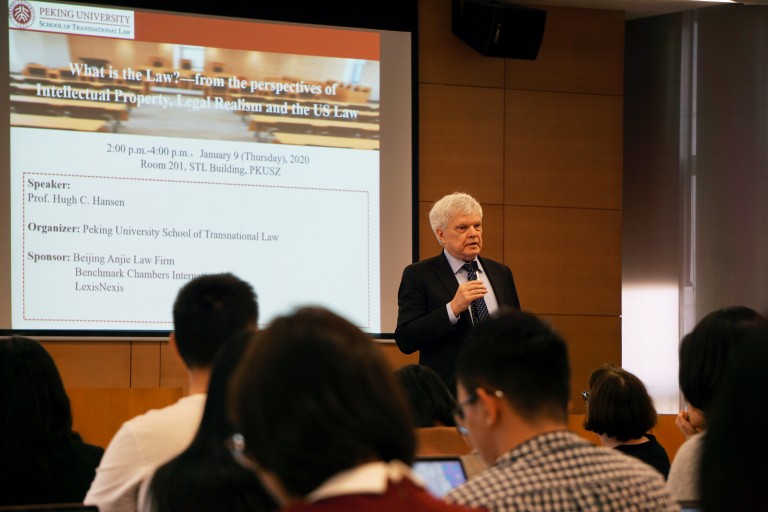
Professor Daryl Lim is a multi-award-winning author, observer, and commentator of IP trends and how they influence and are influenced by law, technology, economics, and politics. He holds the inaugural Microsoft Professorial Fellowship at Fordham University School of Law’s Emily C. & John E. Hansen IP Law Institute and was awarded the 2019 Thomas Edison Innovation Fellowship by the Center for the Protection of Intellectual Property at Antonin Scalia Law School, George Mason University.
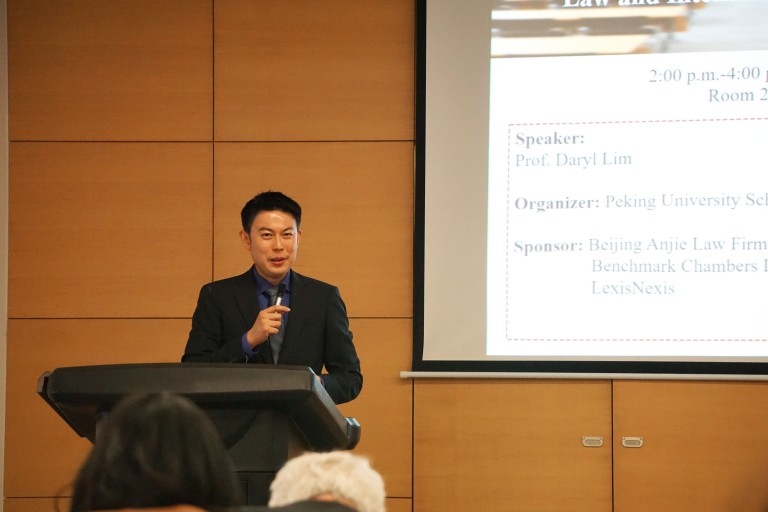
In the lecture, Professor Hugh C. Hansen explored the theme of “What is the law?” from the perspectives of Intellectual Property, Legal Realism and the US law. He talked about three levels of courts in the United States, and they could apply different strategies to a case and affect the results of law and case law. He pointed out that the Constitution and the laws of the United States Congress had little impact on IP case law, while state regulations and case law had little impact on IP law.
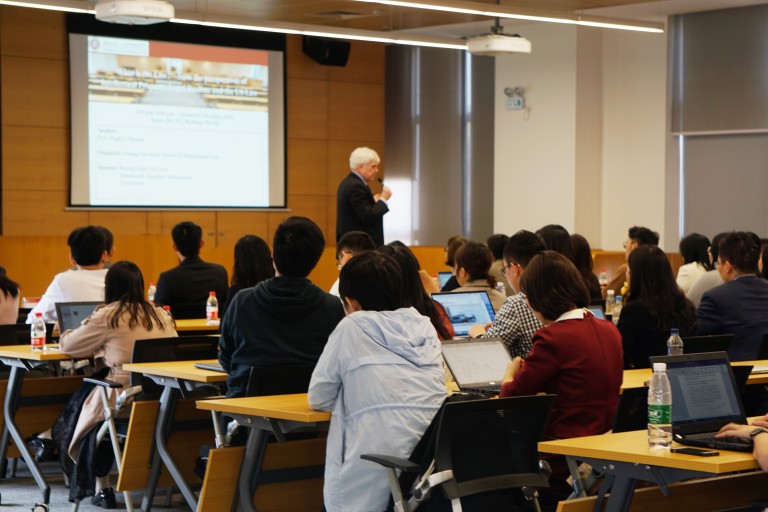
Professor Daryl Lim introduced the current patents through the popular Chinese ancient drama “The Story of Yan’Xi Palace”. He introduced the current patents with the development of the most popular artificial intelligence, 5G and the Internet of Things , the interactive development of law and intellectual property and antitrust law . For example, he pointed out that China’s development level in 5G has attracted worldwide attention and discussion, and in the 5G competition, how will the latest progress in the field of antitrust law affect the United States, and what actions will the United States take to respond. At the same time, the international anti-monopoly case of Huawei in recent years also reflects the complex relationship between intellectual property rights and anti-monopoly law and its far-reaching impact.
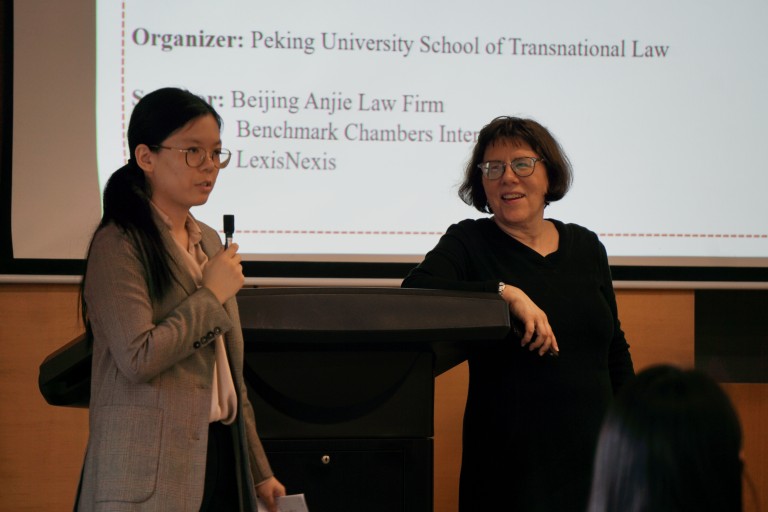
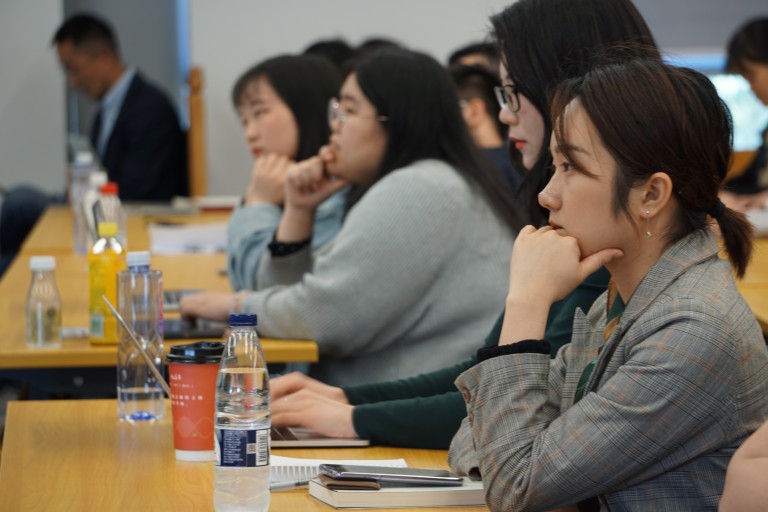
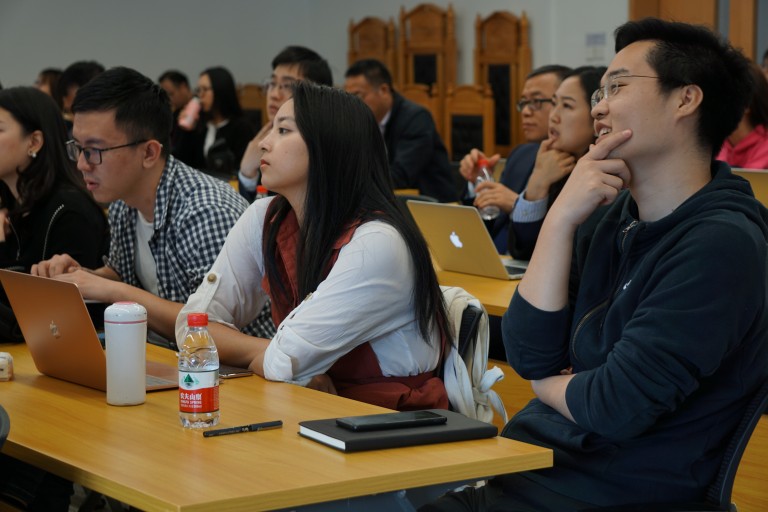
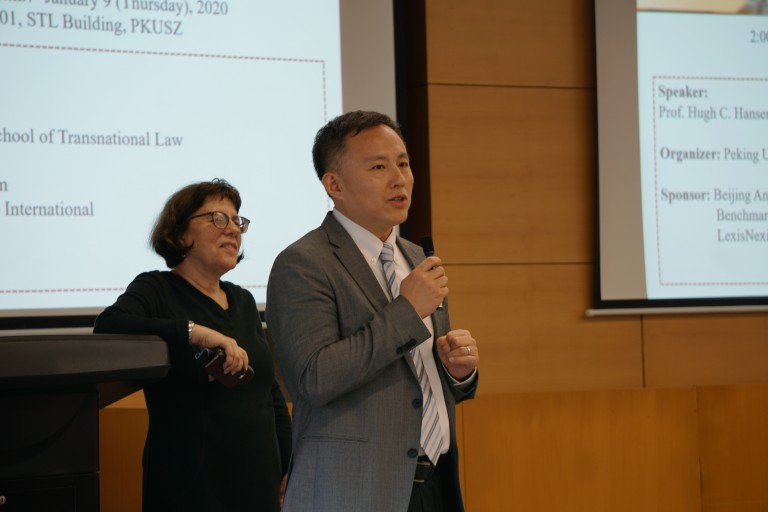
After the speech, Mr. He Jing, a partner of Anjie Law Firm, made some comments on different situations between the U.S. and China under the development of Intellectual Property Law and Antitrust Law. During the Q&A session, the students and other practitioners also had a full and lively discussion with the guests on related issues.
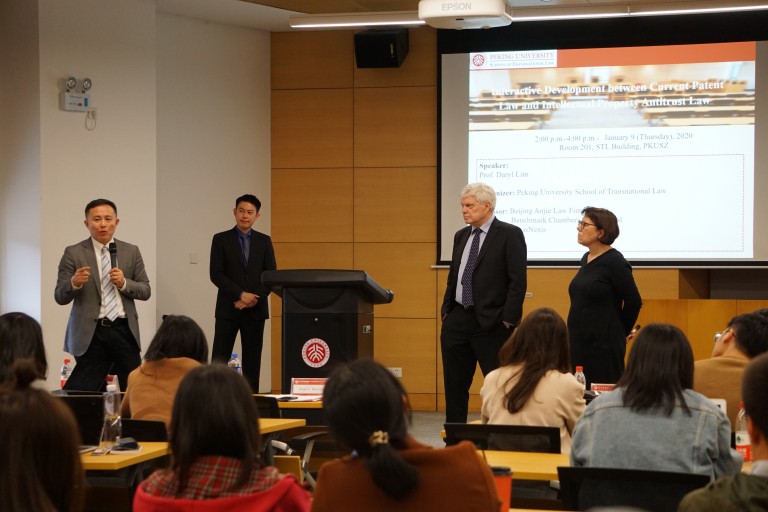
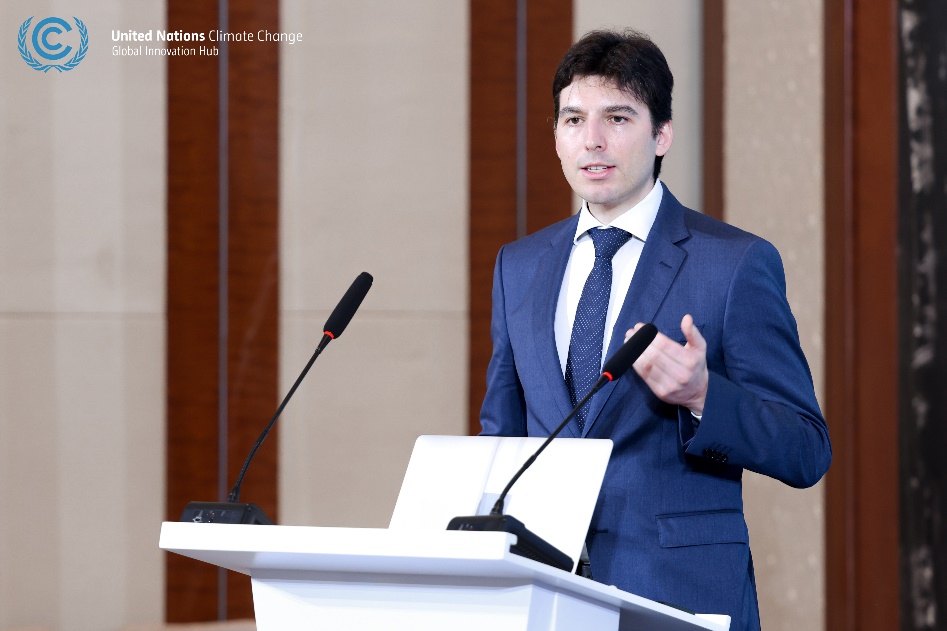
October 14, 2024
October 14, 2024
October 14, 2024
October 14, 2024
October 14, 2024